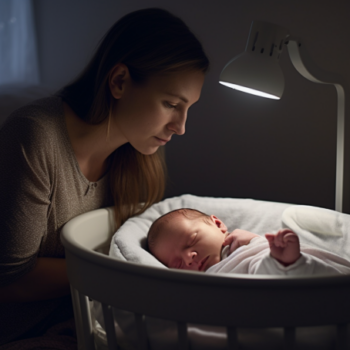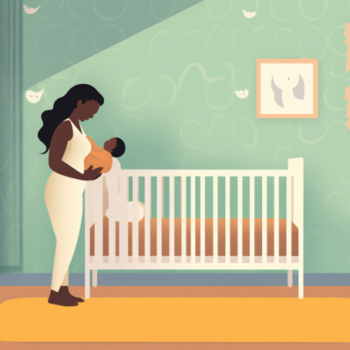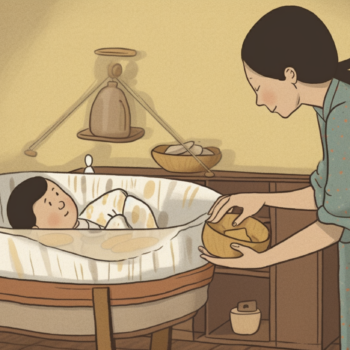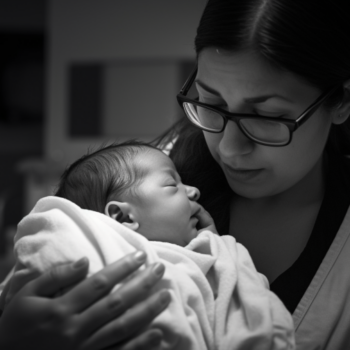As a new parent, it can be alarming to hear your little one wake up crying in the middle of the night. While it's natural for babies to cry as a way of communicating their needs, there are several reasons why your newborn may wake up crying. From hunger and discomfort to gas and colic, understanding the possible causes can help you soothe your baby and get them back to sleep. In this blog post, we'll explore the most common reasons why newborns wake up crying and provide tips on how to address them. So, if you're a new parent looking for answers, keep reading to learn more!
Category: Newborn care
When Is the Best Time to Begin Sleep Training for Your Newborn?
Sleep training is a hotly debated topic among parents, and the answer to when you should start can vary depending on who you ask. However, most pediatricians recommend waiting until your baby is at least 4-6 months old before implementing any sort of sleep training. This is because newborns have small stomachs and need to eat frequently, so waking up during the night is normal and necessary for their development. Additionally, sleep training too early can be harmful to a baby's emotional and physical well-being. As you approach the 4-6 month mark, keep an eye out for signs that your baby is ready for sleep training, such as consistently waking up at the same time every night or being able to soothe themselves without your help. Remember, every baby is different, so don't feel pressured to start sleep training until you and your pediatrician feel comfortable doing so.
Effective ways to soothe your newborn to sleep
If you're a new parent, you might be struggling with how to soothe your newborn to sleep. It can be a challenge to get your little one to drift off, but there are a few things you can try. First, establish a bedtime routine that includes a soothing activity like a bath or gentle massage. Next, swaddle your baby to help them feel secure and comfortable. You can also try using a white noise machine or playing calming music to help them relax. Finally, make sure your baby is well-fed and burped before putting them down. With patience and persistence, you'll find the right combination of strategies to help your newborn get the rest they need.
The Risks of Newborns Sleeping on Their Stomach: Safety Precautions and Guidelines
As a new parent, one of the most common questions you may have is whether it is safe for your newborn to sleep on their stomach. While stomach sleeping may seem comfortable for babies, it is not recommended due to the risk of sudden infant death syndrome (SIDS). The American Academy of Pediatrics recommends placing babies on their backs to sleep until they are at least one year old. This reduces the risk of SIDS by up to 50%. It is essential to ensure that your baby's sleep environment is safe, including using a firm mattress and avoiding loose bedding, soft toys, or other objects that could obstruct their breathing. Always consult with your pediatrician if you have any concerns about your baby's sleeping habits.
Discovering Newborn Sleep Patterns: A Guide to How Often They Sleep
As a new parent, one of the most common questions you might have is how often should your newborn be sleeping. Newborns tend to sleep a lot, with an average of 16-17 hours per day. However, they typically wake up every few hours to eat and then go back to sleep. It's important to note that newborns have their own unique sleep patterns and may not sleep for long periods of time at night right away. As your baby grows and develops, their sleep patterns will change, and it's important to adjust your expectations accordingly. By understanding your newborn's sleep patterns and needs, you can help ensure that they are getting the rest they need to grow and thrive.
The Ultimate Guide to Newborn Sleep: Understanding How Long Your Baby Needs to Rest
As a new parent, one of the most common questions you may have is how long do newborns sleep? On average, newborns sleep for around 16-17 hours a day, but this can vary depending on the baby's age and individual needs. It's important to establish a healthy sleep routine early on, as sleep plays a crucial role in your baby's development and overall well-being. In this blog post, we'll explore the different stages of newborn sleep, tips for creating a sleep-friendly environment, and strategies for helping your baby establish healthy sleep habits. By following these guidelines, you can ensure that your little one is getting the rest they need to thrive.






